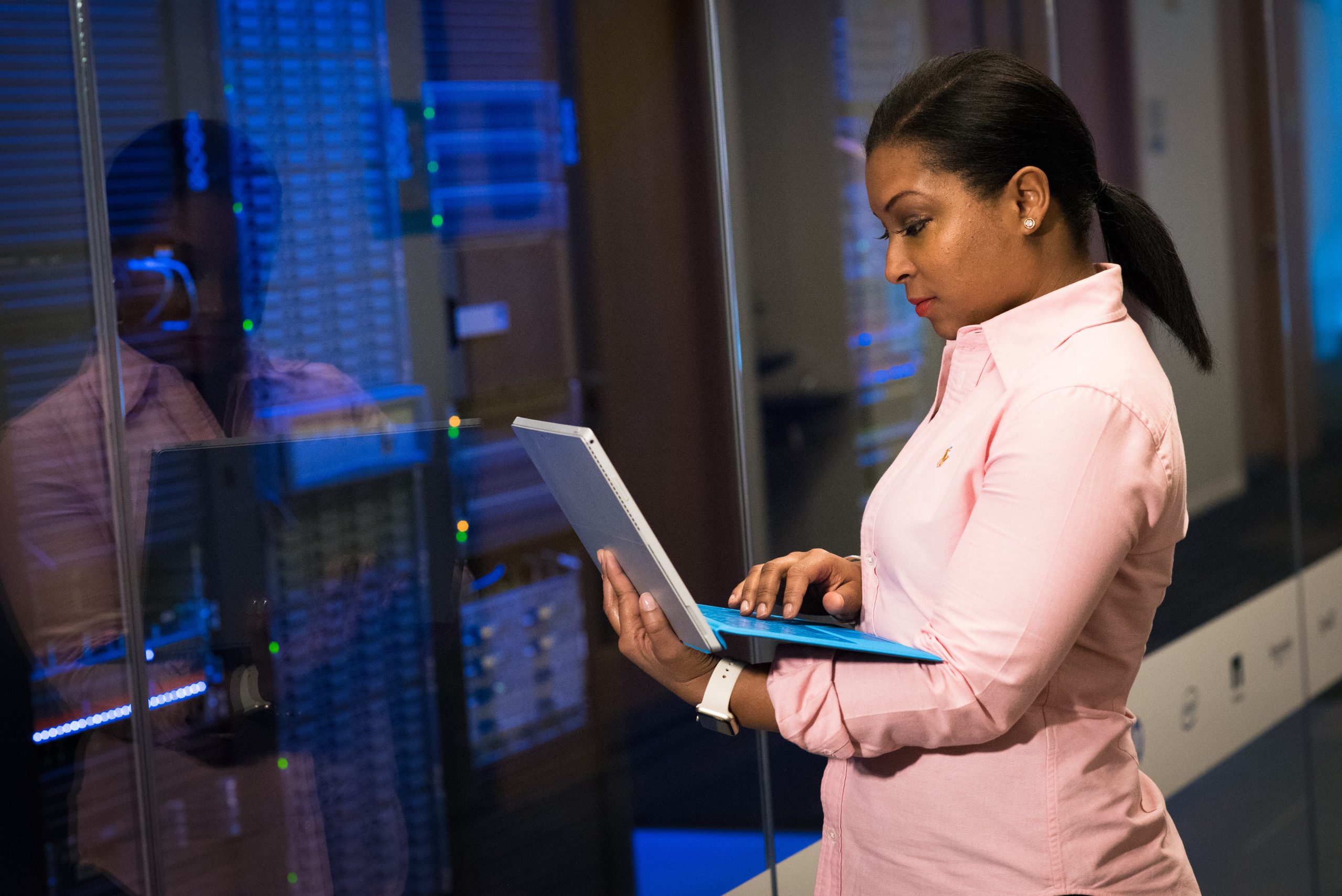WIRED Post: How DriveSavers Got My Data Back

DriveSavers data recovery engineers working in one of its secure clean rooms. PHOTO: MAT HONAN
After being hacked: Mat Honan thought he lost his digital life forever, but DriveSavers engineers were able to restore most of it by diving deep into his compromised laptop.
This is his story:
After getting epicly hacked and having my computer wiped remotely, I was left with the world’s saddest MacBook Air. My useless machine came back to me from the Apple Store with a new OS installed on a 6GB partition, and what appeared to be a locked 250GB big blank slate on the other. But in the nothingness of that blank slate, I hoped, were the pictures, movies, and documents that I foolishly and lazily had failed to back up.
I considered trying to recover the data myself. There are a lot of at-home data-recovery tools, and, well, it would make a better story – or at least, a story that made me look better. But after just a little bit of research, I decided I wasn’t about to try.
The MacBook Air uses a solid state drive (SSD), which offers faster performance while using less physical space than a traditional hard drive. But an SSD has unique recovery problems. And my data was too valuable to me to entrust to, well, an idiot like me. So I packed up my machine and shipped it off to DriveSavers, a Novato, California, company that specializes in data recovery. They called me on a Monday to say that the drive had arrived, then again the following day to let me know that they were finished and that they had been able to retrieve nearly all of my important data.
Instead of having them ship everything back to me on a new drive, I drove out to Novato the next day to see how these guys work.
The facility is straight up CSI. Clean rooms lead to cleaner rooms, which lead to even cleaner rooms, and so on. The workspaces range from federal standards of 100,000 to 100. (The rating is a measure of the number of 0.1-micron-sized airborne particles per square meter.) Additionally, all employees undergo annual background checks, due to the company’s contracts with government agencies like the DOD and FBI. DriveSavers also has to meet crazy data-security requirements – like HIPAA certification to do work for hospitals and GLBA for financial institutions. Basically, the company has to meet all of the same security standards its clients do.
https://www.wired.com/2012/08/how-drivesavers-got-my-data-back/


